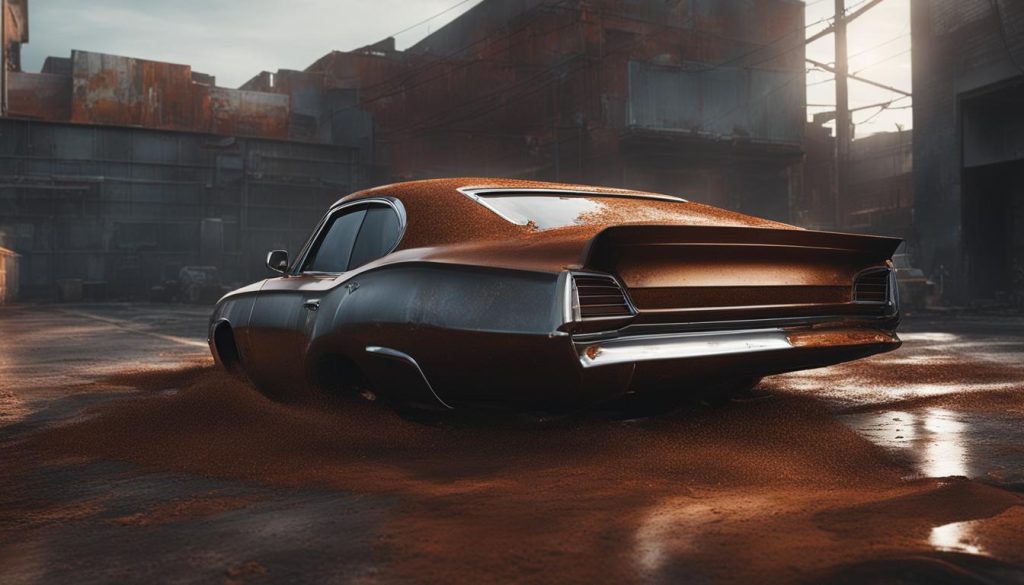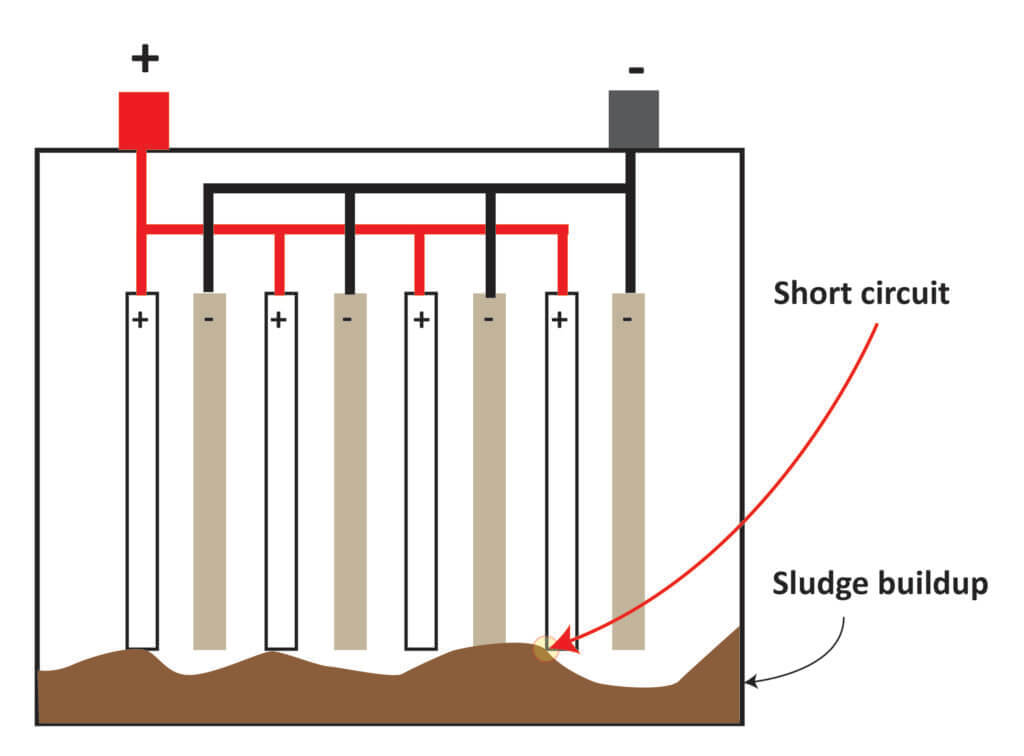Car battery dies with no symptoms
What causes a car battery to die suddenly with no symptoms?
Normally, a car battery gives you some symptoms that it’s about to die; slow cranking being the most common. But sometimes, a car battery dies with no symptoms and no warning. Here’s what causes sudden car battery failure:
Car battery plate shedding creates short circuit
Short circuit caused by battery plate shedding
Flooded lead-acid batteries are made from individual plates that are formed in a grid pattern. The grid pattern is designed to allow for the maximum acid-to-plate contact area. Sulfation builds up on the negative plate material which acts as an insulator. And, the lead material on the positive plate flakes off or “sheds” due to normal expansion and contraction during charging and discharging cycles. So the negative plate loses performance due to loss of surface area caused by sulfation buildup and the positive plate sheds, forming a brown mud-like sediment at the bottom of the battery case.
The battery plates sit above a built-in sediment trap at the bottom of the case. If the sediment level builds to the point where it touches a positive and negative plate, the battery shorts out. That’s precisely what happens when your car starts just fine and is suddenly dead.
Parasitic draw can cause a car battery to fail with no symptoms
Parasitic Drains: Modern vehicles are equipped with various electronic components that constantly draw a small amount of power even when the engine is off. These components include the clock, security systems, and even the car’s computer. Over time, these parasitic drains can deplete the battery’s charge, especially if the vehicle isn’t driven regularly. While individually these drains are small, their cumulative effect can eventually drain the battery to a point of no return.
Temperature extremes can damage your car battery
Heat is the number one killer of car batteries, but many times the effects of heat damage don’t show up until the first cold spell. Then the battery fails. People think the failure was caused by the cold, but it was really head damaged.
Age can cause a car battery to fail without warning
As mentioned earlier, age is a significant factor in battery health. Even if a battery seems fine and is functioning adequately, it might be nearing the end of its lifespan. In such cases, the battery can fail suddenly and without any apparent symptoms because it has already been weakened by age-related degradation.
Long-term non-use can cause car battery failure with no symptoms
Car batteries lose their charge when sitting unused. If left for long periods, lead-acid batteries develop sulfation which reduces the battery’s ability to produce power. In addition, long term non-use causes the acid-water mixture to stratify, which causes lead plate deterioration. So your battery may be in good condition when you parked it. But after sitting unused for 2 or 3 moths, the car battery can die suddenly with no symptoms.
Sudden High-Demand usage can cause a battery to die suddenly
Leaving the headlights on for an extended period, using power-hungry accessories while the engine is off, or attempting to start the car with a failing alternator can put immense strain on the battery. In some cases, this sudden surge in demand can lead to the battery failing without any prior warning signs.
©, 2023 Rick Muscoplat
Posted on by Rick Muscoplat
#car #battery #die #symptoms #Ricks #Free #Auto #Repair #Advice #Ricks #Free #Auto #Repair #Advice












